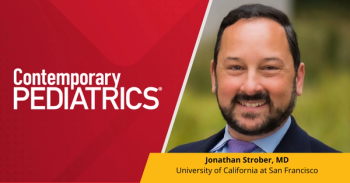
Drug-resistant patients have improved health-related quality of life post pediatric epilepsy surgery
At 2 years post-pediatric epilepsy surgery, 72% of patients were seizure-free compared to 33% of medically-treated patients.
Health-related quality of life (HRQOL) improved within the first year and remained stable for 2 years post-pediatric epilepsy surgery in patients with drug-resistant epilepsy (DRE), according to a recent study published in Jama Network Open.
Results demonstrated 72% of patients that received pediatric epilepsy surgery were seizure-free compared to 33% of medically-treated patients. In relation to medical patients, surgical patients experienced greater improvements in social functioning, but not cognitive, emotional, and physical functioning.
Behavior and cognitive, social, and emotional functioning are all facets of children’s HRQOL that can be negatively impacted by epilepsy, which affects 0.5% to 1% of children, study authors state. Improved HRQOL and seizure freedom can also demonstrate improved educational attainment, as well as reduce health care resource utilization and health care costs.
To determine the trajectory of HRQOL 2 years post-epilepsy surgery in children with DRE, a prospective, multicenter, cohort study assessed children at 8 epilepsy centers in Canada from 2014 to 2019. Of the 265 patients aged 4 to 18 years with suspected DRE, 111 were treated with surgery and 154 medically (mean [SD] age at baseline was 11.0 [4.1] years; 118 [45%] were female). Assessed by clinical semiology and/or electroencephalography (EEG), each patient had suspected focal epilepsy and was being evaluated for epilepsy surgery candidacy. Of the 265 patients, 148 (56%) had daily or weekly seizures and were receiving a mean (SD) of 2.0 (0.9) antiseizure medications (ASMs).
Baseline HRQOL, measured using the parent-reported Quality of Life in Childhood Epilepsy Questionnaire (QOLCE)-55, was similar in surgical and medical patients, according to study authors. HRQOL and seizure frequency was assessed at baseline, 6-month, 1-year, and 2-year marks. This data was analyzed from May 2014 to December 2021. Internal consistency of the QOLCE-55 ranged from a = .96 to .97. Of the 265 patients, 170 were followed over 2 years and all children with missing data at follow-up intervals were included. Similar baseline characteristics were recorded in children who completed the 2-year follow-up and those that did not.
Limitations were present in the study. Authors state the ideal design for this study would have been a randomized clinical trial, but recruiting difficulties and ethical obligations prevented this form of study. Parent-reported HRQOL is another limitation according to authors, as they found parents generally have tendencies to underestimate their child’s HRQOL. Authors found slight differences in trajectories related to HRQOL between parents and their children, and they suggest that multi-informant approaches could provide a broader view of HRQOL over time.
With evidence on the association between epilepsy surgery and HRQOL, the authors concluded “higher seizure freedom following epilepsy surgery could have been associated with improvement in HRQOL. Understanding the evolution of HRQOL after surgery compared with medical therapy is important in counseling children and parents and will contribute to informed decision-making on treatment options.”
Authors believe the study provided, “objective evidence to justify the high costs of surgery and to improve access to surgery.”
Reference
Widjaja E, Puka K, Speechley KN, et al. Trajectory of health-related quality of life after pediatric epilepsy surgery. JAMA Netw Open. 2023;6(3):e234858.doi:10.1001/jamanetworkopen.2023.4858
Newsletter
Access practical, evidence-based guidance to support better care for our youngest patients. Join our email list for the latest clinical updates.







